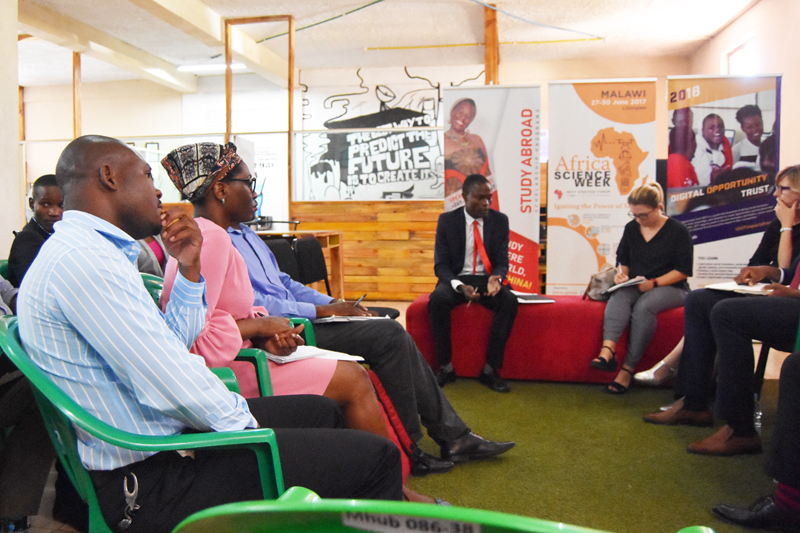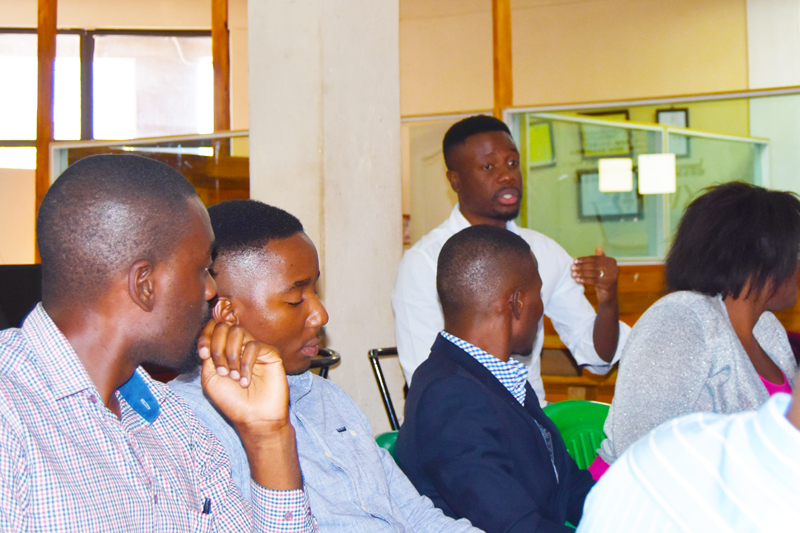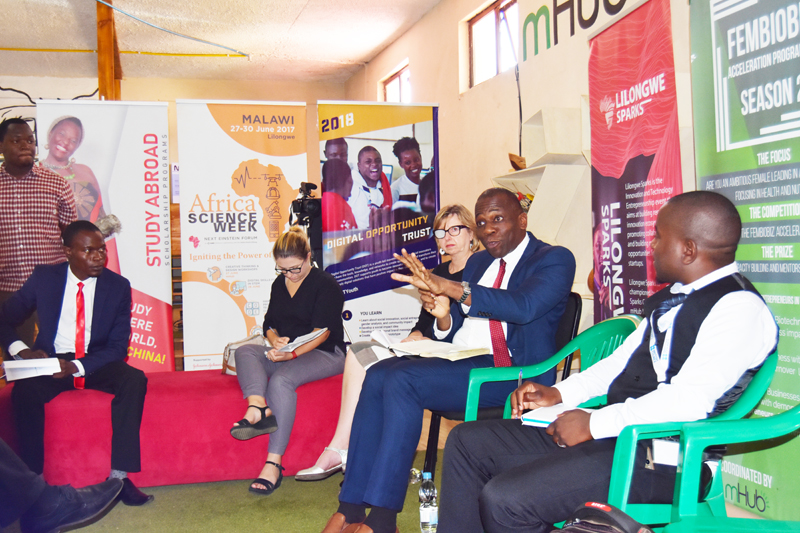Tech and Social Entrepreneurship in Malawi
I attended a round table discussion on Tech and Social Entrepreneurship in Malawi organised by British Council and mHub. The discussion was attended by British Council’s Regional Director for Sub-Saharan Africa Moses Anibaba, British Council Country Director Louisa Waddingham, the head of innovation at DFID in Malawi and representatives of social and tech entrepreneurs.
The objective was to look at the status of digital and social enterprises in Malawi and the role of digital in the enterprise economy. Another objective was to look at British Council’s strategy in the digital and enterprise economy.

State of Digital
mHub CEO Vincent Kumwenda kicked off the session by asking each participant to introduce themselves and give their personal opinion of the state of digital.
There was a general consensus that many young Malawians are using digital and social platforms extensively for more than just communication. They are actively marketing businesses and engaging in some form of commerce. There is slow adoption of technology among the older generation and the wider, mostly rural-based populace due to issues around access and high cost of equipment and data.
Telephone penetration rates in Malawi are the lowest in the Southern African Development Community (SADC) region at around 38% but has one of the highest calling rates. Only 10% of the population have access to internet. Existing mobile phone companies have a combined customer base of about 10 million within a population of over 17.5 million.
Policy Environment
On e-commerce and connecting to the National Switch Centre, Takondwa Makawa of events app Phwando expressed his concern about the cost requirements. He said the Reserve Bank of Malawi, the financial regulator of the switch, demands K50 million from fintechs wanting to connect. He believes this hinders the growth of e-commerce in the country. Takondwa also thinks that by having the Bankers Association of Malawi run the national payments switch, other players wanting to join are viewed as competition.
Chipping in, Bram Fudzulani of Angle Dimensions said it actually costs more than the K50m but that the regulator is flexible with small operators. He suggested that startups work through financial organisations like banks that are already using the platform. Angle Dimension has access to the national switch through a bank but they had to offer them value for the deal to work. “Show them you will add to their bottom line,” Bram said.
Moses Anibaba also added on by saying when lobbying key players or engaging government, it is important to speak their language and tell them what will also be of interest to them.
Funding

You can’t have a meeting of innovators and entrepreneurs without the mention of startup financing. Jeremiah Chienda pointed out that there seems to be an abundance of funding available for social innovations but a lack of the same for commercial ventures. He is looking for funding and investment to scale his tourism booking platform Tiyeni.
Probably having heard this line a few times, Mzuzu Entrepreneurs Hub co-founder Wangiwe Kambuzi said it was important to understand what investors want and to know what being investor-ready is really all about. She encouraged innovators and startups to work with hubs as one way to understand the investment journey and get matched to investors.
British Council commitment

Wrapping up, Moses Anibaba made a commitment to work with African creatives and innovators through hubs such as mHub in areas such as talent and skills development. On her part, Louisa Waddingham said that the British Council will continue to engage with creators and innovators through mHub and provide linkages to partners in the region and beyond.
Malawi has the potential to grow in the digital space. I have said it before – we have the talent. The general feeling was that entrepreneurs need to push through innovation and ideas that solve real problems. By doing so, we will be able to change the culture, influence policy and bring about a much needed digital revolution.
British Council is at @mHubMW this morning with our visiting Regional Director for Sub-Saharan Africa, Moses Anibaba. We are holding discussions around tech and social enterprise with entrepreneurs in the field to hear about their experiences. pic.twitter.com/63Y4RApqFW
— British Council (@mwBritish) March 11, 2019
I later had a chat with Jeremiah Chienda about his app. Tiyeni is providing a booking platform for all players in the tourism industry regardless of size, something current platforms like TripAdvisor and Booking.com don’t do. He has plans to scale the platform onto the global market but expressed frustration at the lack of APIs to link into popular local payment platforms like Airtel Money and TNM Mpamba. As someone who has one foot in the wonderful world of tourism, it will be great to see him make a mark in the African and global tourism space. We can only wish Jeremiah well in his endeavours.
To receive a monthly roundup of stories from the #LifeUnbound blog and other gems subscribe below.





